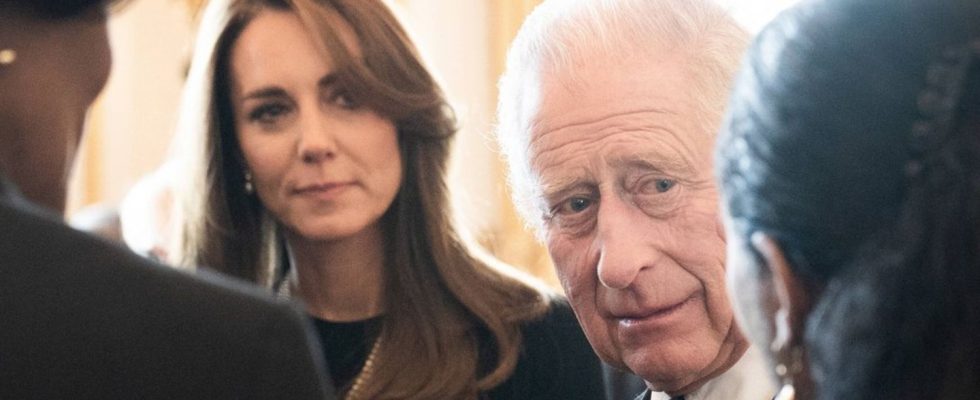Princess Kate and King Charles III
Online pages about cancer asked
Princess Kate and King Charles III Both are currently undergoing cancer treatment.
© IMAGO/i Images
King Charles III’s cancer and Princess Kate have caused many people to think about the topic.
So shocking the cancer diagnosis for Princess Kate (42) is too – by making her illness public she may be able to save lives. As several British media reported, her video message encouraged many people to deal with the disease and its symptoms. This makes her just like King Charles III. (75) is an important role model for prevention, even if the exact type of cancer has not yet been disclosed.
“Talking about cancer saves lives”
As “The Mirror” reported, charities and NHS England saw a “sharp increase” on their online sites following the video’s release on Friday evening (March 22). “Hundreds of thousands” were now interested in the disease and prevention options. Prof Peter Johnson, cancer chief at NHS England, said: “The Princess of Wales bravely speaking out about her diagnosis will help others do the same. As a result, we have seen an increase in the number of visitors to our website seeking important information about signs and symptoms. Talking about cancer saves lives when it encourages people to come forward sooner when something is wrong.”
In the following hours, the NHS website about cancer symptoms was visited on average every three seconds. From 6 p.m. to 9 p.m. there were 4,172 searches – more than double the usual rate. And visits to the cancer homepage were five times higher than normal within 24 hours.
Early diagnosis is important
Cancer Research UK recorded more than 200,000 visitors to its information pages on March 22 – an increase of 15 percent. Chief executive Michelle Mitchell said Kate’s announcement meant many were more likely to get an early diagnosis, which could be vital. “These figures show how high-profile cancer cases can encourage people to learn more or think about their own health.” She stressed: “If people notice something that is not normal for them or does not go away, they should contact their GP. Detecting cancer at an early stage increases the likelihood that treatment will be successful.”
Macmillan Cancer Support recorded almost 100,000 web visitors between Friday and Sunday, up 10 per cent on the same period last year. It is the highest increase since the Corona lockdown. Managing director Gemma Peters believes: “Many will relate to the Prince and Princess of Wales.” It was very valuable that Kate also spoke about her three children in this situation. “Some of the first thoughts parents have after being diagnosed with cancer are what impact it might have on their children.” The princess raised awareness of these concerns.
Many searches for “cancer” and “abdominal cancer”
As The Sun reported, Google data from Great Britain also showed great interest in the topic. Searches for the word “cancer” increased 16-fold from 6 p.m. on Friday and were at least twice as high as average throughout the night and into Saturday. Searches for “abdominal surgery” and “abdominal cancer” were also significantly higher than usual. Kate had to undergo unspecified abdominal surgery in mid-January. Then she received the cancer diagnosis.
She shares the same fate as her father-in-law. King Charles III also had to undergo surgery for an enlarged prostate in January. Cancer was discovered. After this was announced in early February, the NHS and charities experienced similar interest in their websites. The Prostate Enlargement page on the NHS website was already being viewed every five seconds after the Palace announced Charles’ upcoming operation in January.

